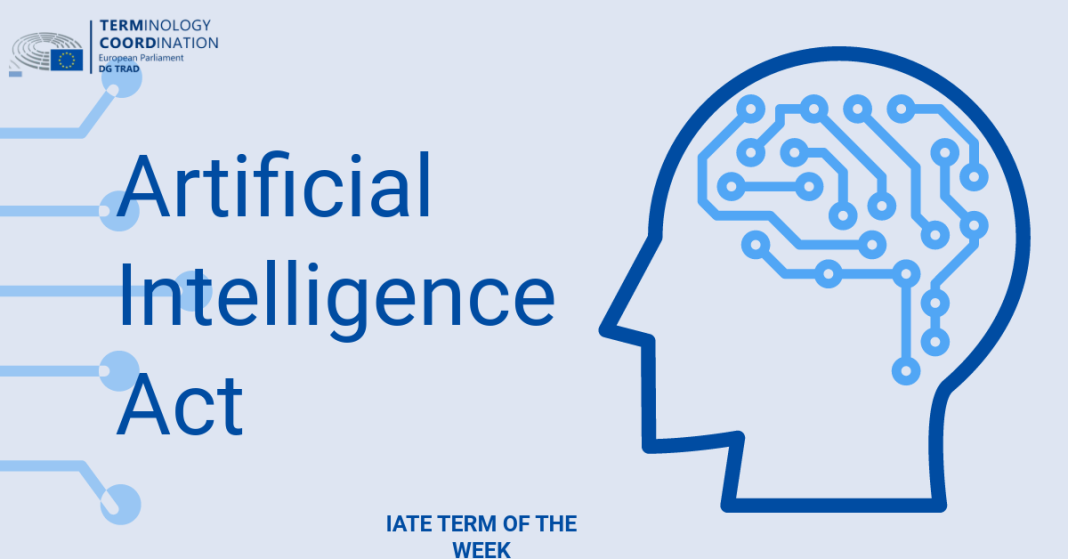In recent years, the development of Artificial Intelligence has witnessed rapid advancements, showing how AI has the potential to significantly change our ever-evolving society, bringing both positive benefits and high risks.

In order to establish a harmonised regulatory framework on AI across the EU member states, the European Commission drafted a first proposal in April 2021. On 6 December 2023, the European Parliament and the European Council reached a provisional agreement on the Artificial intelligence Act, marking the first comprehensive set of rules on AI in the world.
The AI Act has the aim to ensure the safety and adherence to fundamental rights of AI systems in the European market while promoting innovation and investment in AI across Europe.
Designed with a ‘risk-based’ approach, the EU AI Act sets out obligations for AI providers and users based on the perceived level of risk, classifying AI systems into three categories:
- limited risk: this type of AI systems is subject just to light transparency regulations, such as a disclaimer to inform users that the content was AI-generated;
- high risk: these AI systems are authorised, but will face strict compliance measures, such as mandatory fundamental rights impact assessments and the implementation of human oversight;
- unacceptable risk: AI system of this kind are banned from the EU. This includes cognitive behavioural manipulation and biometric categorisation systems that use sensitive characteristics, such as political beliefs, sexual orientation, and race.
In an effort to ensure seamless coordination and enforcement across the European Union, the AI Act introduces a comprehensive governance framework. This includes the establishment of a European “AI Office” tasked with overseeing and enforcing the rules at EU level. At national level, competent market surveillance authorities will monitor implementation.
The AI Act also incorporates measures designed to support innovation, such as regulatory sandboxes and real-world testing, subject to certain specific conditions and safeguards. In particular, fines for breaches of the AI Act will be calculated as a percentage of the company’s global annual turnover, with proportionate caps for small and medium-sized enterprises and start-ups to prevent hindering innovation.
This landmark agreement strikes a delicate balance between fostering innovation and implementing a robust governance framework, setting a precedent for global AI rules. The European Union AI Act will come into effect two years after its entry into force, marking a significant milestone in the regulation of artificial intelligence.
Bibliography
Council of the EU. (2023). Artificial intelligence act: Council and Parliament strike a deal on the first rules for AI in the world. Retrieved from: Council of the EU – press releases: https://www.consilium.europa.eu/en/press/press-releases/2023/12/09/artificial-intelligence-act-council-and-parliament-strike-a-deal-on-the-first-worldwide-rules-for-ai/
Council of the EU. (2023). Proposal for a Regulation of the European Parliament and of the Council laying down harmonised rules on artificial intelligence (Artificial Intelligence Act) and amending certain Union legislative acts. Retrieved from: https://data.consilium.europa.eu/doc/document/ST-14954-2022-INIT/en/pdf
European Commission. (2023). A European approach to artificial intelligence. Retrieved from: https://digital-strategy.ec.europa.eu/en/policies/european-approach-artificial-intelligence
European Commission. (2023). REGULATION OF THE EUROPEAN PARLIAMENT AND OF THE COUNCIL on artificial intelligence (artificial intelligence act) and amending certain union legislative acts. Retrieved from: https://eur-lex.europa.eu/legal-content/EN/TXT/?uri=CELEX%3A52021PC0206&qid=1705415851867
Written by Eleonora Montanari
Born in Italy, she studied Linguistics and Cultural Mediation at the University of L’Aquila. In order to combine her passion both for languages and communication, she continued her studies with a Master’s degree in Foreign Languages for International Communication at the University of Turin and with a postgraduate course in Global Marketing, Communication and Made in Italy. Both during her bachelor and her master’s studies, she enjoyed the Erasmus+ program, studying first in Leipzig and then in Trier. After coming back from her second experience abroad, she graduates with a thesis focused on the language and linguistic aspects characterising fake news. She enjoys singing, walking and getting lost in the nature.

